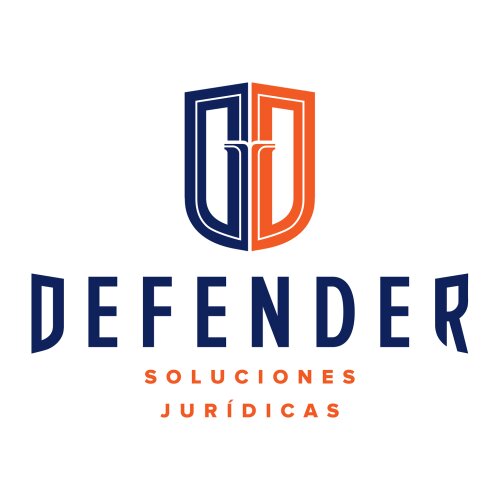Best Labor Law Lawyers in Colombia
Share your needs with us, get contacted by law firms.
Free. Takes 2 min.
Or refine your search by selecting a city:
List of the best lawyers in Colombia
About Labor Law in Colombia
Labor Law in Colombia governs the relationship between employers and employees, focusing on rights and responsibilities within the workplace. It is designed to ensure fair and equitable treatment for workers, promote harmonious industrial relations, and protect fundamental labor rights. The law encompasses a spectrum of issues, including wage regulations, working conditions, employment contracts, dispute resolution, and social security benefits. The primary legal framework is the Colombian Constitution and the Substantive Labor Code, which is complemented by international labor standards set by the International Labour Organization (ILO).
Why You May Need a Lawyer
There are several situations where individuals may require legal assistance in labor law. Common scenarios include:
- Terminations and layoffs, particularly regarding whether they comply with legal provisions.
- Disputes over wages, including unpaid overtime or salary discrepancies.
- Issues related to employment contracts and whether their terms are being honored.
- Cases of workplace harassment, discrimination, or maltreatment.
- Understanding employee rights regarding working hours, breaks, and leave entitlements.
- The need for mediation in employer-employee disputes.
- Enforcement of collective bargaining agreements or labor union involvement.
Local Laws Overview
The following key aspects of local laws are especially relevant to labor law in Colombia:
- Employment Contracts: All employment relationships should be documented through a contractual agreement outlining conditions, wages, and rights.
- Minimum Wage: The government sets a national minimum wage annually, which employers must adhere to.
- Working Hours: Standard working hours are 48 hours per week, and overtime must be compensated.
- Labor Unions: Workers have the right to organize and form unions to protect their interests.
- Social Security: Employers and employees contribute to pension, health, and occupational risk insurance systems.
- Termination of Employment: Specific grounds for termination exist, and workers are entitled to certain indemnities based on service longevity.
- Anti-Discrimination Laws: Discrimination based on race, gender, age, religion, and other factors is prohibited.
Frequently Asked Questions
What are my basic rights as an employee in Colombia?
Employees have the right to fair pay, safe and healthy working conditions, reasonable working hours, and the freedom to join labor unions.
How is the minimum wage determined?
The national minimum wage is set annually by the government in consultation with workers' and employers' representatives, considering inflation and economic conditions.
Are there limitations to working hours?
Yes, the standard working week is 48 hours. Any work beyond that requires overtime payment.
Do I have a right to paid leave?
Employees in Colombia are entitled to annual paid leave, maternity and paternity leave, and sick leave under specific conditions outlined by law.
Can my employer change my contract terms unilaterally?
No, any changes to the employment contract must be mutually agreed upon by both parties.
What should I do if I experience workplace harassment?
You should report the harassment to your employer or human resources department. If unresolved, legal action can be taken through court or labor authorities.
Is it compulsory to contribute to social security?
Yes, both employers and employees are required to contribute to social security, covering health, pensions, and occupational risks.
What happens if my employment is terminated without cause?
If terminated without a valid cause outlined in the Substantive Labor Code, workers may be entitled to severance pay or reinstatement.
Can I form or join a labor union?
Yes, employees have the legal right to form or join labor unions to protect their work-related interests.
What are the steps to resolve a labor dispute?
Initially, disputes should be addressed internally through dialogue or mediation. If unresolved, they may be escalated to the labor courts or relevant authorities for resolution.
Additional Resources
Here are some resources you can refer to for assistance in labor law:
- Ministry of Labor: The government body responsible for labor regulations and enforcement in Colombia.
- Social Security Institute: For information on health, pensions, and welfare benefits.
- Labor Unions: Organizations such as the Central Unitaria de Trabajadores (CUT) provide support and guidance to employees.
- Legal Aid Services: These offer pro bono or low-cost legal advice to those who qualify.
Next Steps
If you find yourself needing legal assistance in labor law, consider the following steps:
- Identify the issues or concerns you have about your employment situation.
- Collect relevant documentation, such as your employment contract, pay records, and any correspondence with your employer.
- Consult with a labor law attorney to get legal advice tailored to your specific circumstances.
- Explore mediation or arbitration services for a potentially quicker and less formal resolution to disputes.
- If necessary, file a formal complaint with the Ministry of Labor or seek recourse through the labor courts.
Lawzana helps you find the best lawyers and law firms in Colombia through a curated and pre-screened list of qualified legal professionals. Our platform offers rankings and detailed profiles of attorneys and law firms, allowing you to compare based on practice areas, including Labor Law, experience, and client feedback.
Each profile includes a description of the firm's areas of practice, client reviews, team members and partners, year of establishment, spoken languages, office locations, contact information, social media presence, and any published articles or resources. Most firms on our platform speak English and are experienced in both local and international legal matters.
Get a quote from top-rated law firms in Colombia — quickly, securely, and without unnecessary hassle.
Disclaimer:
The information provided on this page is for general informational purposes only and does not constitute legal advice. While we strive to ensure the accuracy and relevance of the content, legal information may change over time, and interpretations of the law can vary. You should always consult with a qualified legal professional for advice specific to your situation.
We disclaim all liability for actions taken or not taken based on the content of this page. If you believe any information is incorrect or outdated, please contact us, and we will review and update it where appropriate.
Browse labor law law firms by city in Colombia
Refine your search by selecting a city.
















